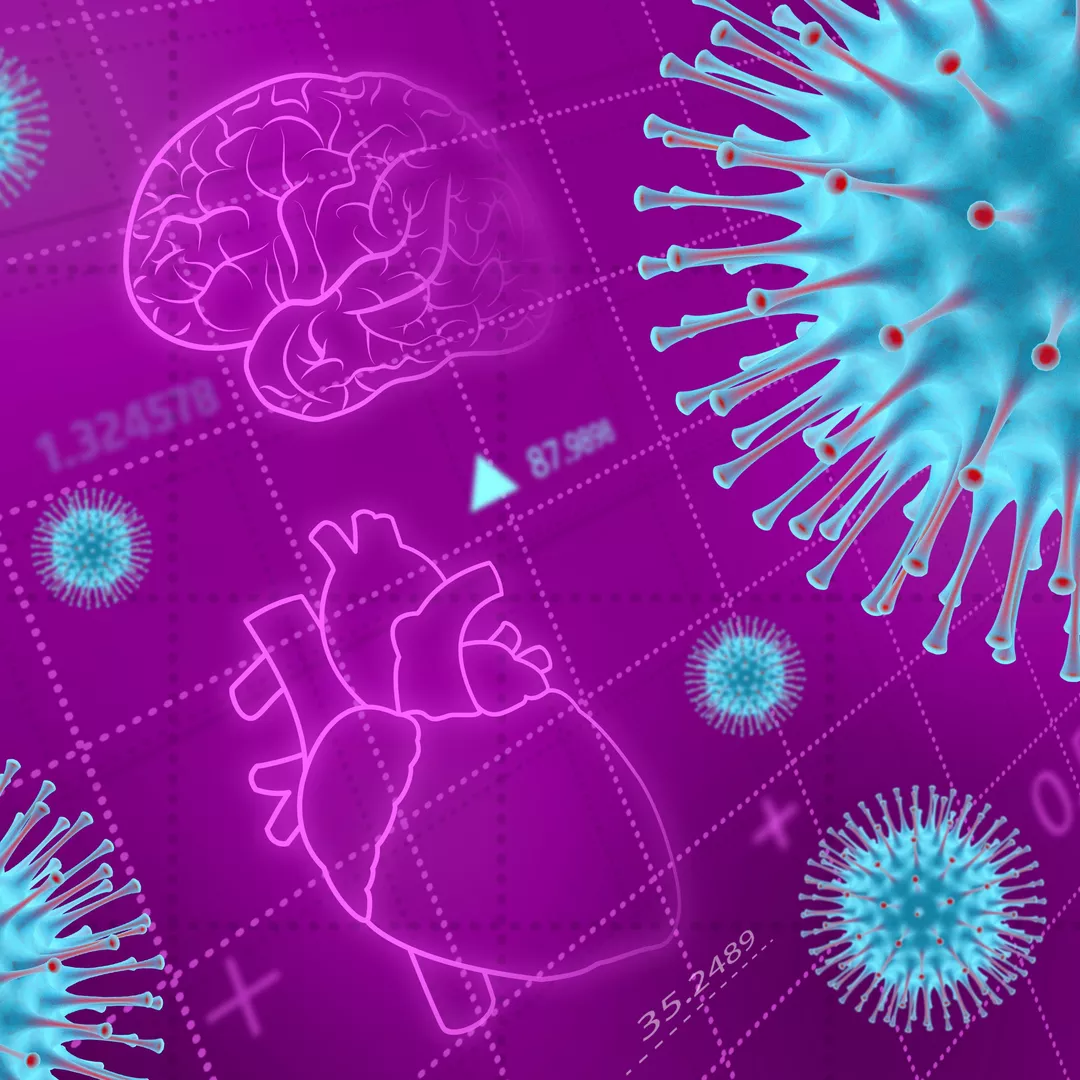As the pandemic has progressed, researchers have begun to understand how COVID-19 impacts our bodies.
Early in the pandemic, risk factors such as heart disease, high blood pressure and diabetes were quickly associated with an increased risk of severe illness and death from COVID.
We now know that, among the myriad ways it can damage our health, the virus can affect the heart and directly cause a range of heart complications.
Also, mRNA COVID vaccines like those from Pfizer and Moderna have been linked with heart inflammation. But this is very rare, and you’re much more likely to get heart inflammation from COVID infection than the vaccines.
Here’s what we know so far.
How does COVID affect the heart?
The SARS-CoV-2 virus can directly invade the body causing inflammation. This can impact the heart, causing myocarditis and pericarditis – inflammation of the heart muscle or outer lining of the heart.
Inflammation from COVID can also cause blood clotting, which can block a heart or brain artery causing a heart attack or stroke.
COVID can also cause abnormal heart rhythms, blood clots in the legs and lungs, and heart failure. Our understanding of how COVID causes heart inflammation and injury to the heart muscle is becoming clearer, though there’s more to learn.
Persistent symptoms from the virus, called “long COVID”, have been reported in about 10–30 per cent of people who’ve contracted COVID.
One study on long COVID, published in July, found common cardiovascular symptoms include heart palpitations, fast heart rate, slow heart rate, chest pain, visible bulging veins, and fainting.
Of roughly 3,700 study participants, over 90 per cent reported their recovery lasted more than eight months.
The Delta variant, first identified in India in October 2020, is highly transmissible. It’s the variant responsible for lockdowns in New South Wales, Victoria and Queensland.
Although data is still emerging, it may cause more severe disease, and anecdotally may increase the chances of heart complications.
A Scottish study found the risk of hospital admission from COVID was around double in those with Delta variant compared to the Alpha variant (which originated in the UK). It also found Delta was spreading most commonly in younger people.
The good news is two doses of either the Pfizer or AstraZeneca vaccines remains effective in preventing Delta complications.
COVID vaccines and the heart
Scientists have discovered a link between the Oxford-AstraZeneca vaccine and a rare blood clotting syndrome.
There’s also a link between mRNA COVID vaccines and a rare side effect of heart inflammation (myocarditis and pericarditis). This seems to be most common in males under 30 and after the second vaccine dose.
But this is very rare. Of the 5.6 million Pfizer vaccine doses administered to Australians so far, there have only been 111 cases of suspected (not confirmed) heart inflammation reported up to August 1. There have been no reported deaths associated with this vaccine side effect in Australia.
Recovery from this heart inflammation is generally good. The benefits of vaccination against COVID far outweigh the potential risks of these generally mild conditions.
Nevertheless, if you experience any change in symptoms after having a COVID vaccine, including chest pain, an irregular heartbeat, fainting or shortness of breath, you should seek prompt medical attention.
The vast majority of people with heart conditions are safe to get vaccinated. But if you have had myocarditis or pericarditis in the past six months then speak with your doctor or cardiologist.
Don’t delay getting your heart checked
Many people have been reluctant to seek medical attention amid the pandemic. This includes for both urgent and routine care of heart disease. Longer delays between the onset of the symptoms and hospital treatment are being reported in countries including England, Italy and China. This makes long-term heart damage more likely.
One study found global hospital admissions for heart attacks have decreased between 40 per cent and 50 per cent. An Australian study found a 21 per cent reduction in cardiac surgery at Sydney’s Royal Prince Alfred Hospital between March and June 2020.
It’s important you don’t neglect your heart health even amid the pandemic. If you ever think you’re having a heart attack, call triple zero (000) immediately.
The author would like to thank the National Heart Foundation’s Amanda Buttery and Brooke Atkins for their help with this article.
Author
Garry Jennings, Professor of Medicine, University of Sydney
This article is republished from The Conversation under a Creative Commons license. Read the original article.
Header image: iStock.com/Leestat

